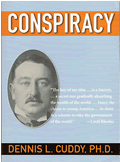By
Roger Stone
September 27, 2016
NewsWithViews.com
Prior
to the financial crisis, banks were not a subject of political or public
ire or focus. They were just companies. The biggest banks were east-coast
and west-coast behemoths. When they lobbied, it was largely in coordination
with the 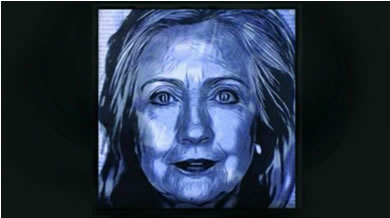 nation’s
smaller community banks. While the smaller community banks have historically
represented the political spectrum of the communities they serve, the
Too-Big-To-Fail (TBTF) banks were aligned with Democrats, being headquartered
in the “bluer” states of New York and California. As a result,
the Democrats, and especially the Clintons, have always relied on the
big banks to support their agenda, and in turn, they have enthusiastically
supported the big bank’s agenda.
nation’s
smaller community banks. While the smaller community banks have historically
represented the political spectrum of the communities they serve, the
Too-Big-To-Fail (TBTF) banks were aligned with Democrats, being headquartered
in the “bluer” states of New York and California. As a result,
the Democrats, and especially the Clintons, have always relied on the
big banks to support their agenda, and in turn, they have enthusiastically
supported the big bank’s agenda.
Unlike community banks, which serve local communities, know their economies and are committed to their neighbors, TBTF big banks don’t know their customers, serve themselves and could care less about their neighbors.
When the great financial crisis came, TBTF banks were largely responsible. The nation wanted justice. But it was time for payback, and the TBTF banks used their capture of the Democrats to extort protection.
Since the crisis, Hillary and her pals have helped to make sure that no real harm comes the TBTF banks. In fact, since the crisis – TBTF banks banks have dramatically increased in size, stifling the ability of smaller banks to compete.
(NOTE: The banks deemed too big by the Obama Administration when it pushed for enactment of Dodd Frank are more than 30% bigger than before the Act was passed in 2010, and 80% bigger than before the banking crisis of 2008. The six largest US financial institutions now have assets of some $10 trillion, amounting to almost 60% of GDP; and they control nearly 50% of all bank deposits. Even some well-heeled clients are being rejected. In an October 19, 2015 article titled “Big Banks to America’s Firms: We Don’t Want Your Cash,” the Wall Street Journal reported that some Wall Street banks are now telling big depositors to take their money elsewhere or be charged a deposit fee.
Municipal governments are also being rejected as customers. Bank of America just announced that it no longer wants the business of some smaller cities, which have been given 90 days to find somewhere else to put their money. Hundreds of local BofA branches are also disappearing.
Hardest hit, however, are the community banks. Today there are 1,524 fewer banks with assets under $1 billion than there were in June 2010, before the Dodd-Frank regulations were signed into law.)
Who loses? Communities, borrowers, competition and local economies.
To follow:
• The Clinton Foundation is Used to Benefit Big Banks
• Big Banks, in Turn, Bankroll the Clintons
I. The Clinton Foundation Is Used to Benefit Big Banks
The Clinton Foundation appears more like a mafia bag-man operation than a reputable non-profit. It claims to be a voice for women and the oppressed, even while it takes billions of dollars from donors who are sexual predators, misogynists and tied to oppressive regimes that reduce the status of women. Only a small percentage of the money raised actually funds real assistance programs; most of the money goes to salaries, speakers and to the Clintons personal expenses.
If you
look at the entire list of donors to the Clinton Foundation, you’ll
see there are lots of individuals under indictment, lots of individuals
and institutions currently embroiled in the Mossack Fonseca scandal, and
lots of foreign officials who have been found to be corrupt. And the big
banks are at the center of it all.
Among largest donors to the Clinton Foundation:
• Barclays Capital
• Citi Foundation
• Standard Chartered
• Goldman Sachs
• Bank of America Foundation
• Citigroup
• HSBC
• Itau Unibanco
• UBS Wealth Management
• Banco Santander Brasil
• Deutsche Bank AG
• Deutsche Bank Americas
• Goldman Sachs Philanthropy Fund
• Morgan Stanley Smith Barney Global Impact Funding Trust, Inc
• Bank of America Corporation
• BMCE Bank
• JPMorgan Chase & Co.
• Merrill Lynch & Company Foundation, Inc.
• Morgan Stanley
• The Monte dei Paschi di Siena
• Wells Fargo Foundation
Examples of how the Clinton Foundation Helps Big Banks to Cash in on “Philanthropy”
CGI Sets up Big Banks to Cash in on Retrofitting Buildings Worldwide
ABN AMRO, Citi, Deutsche Bank, JPMorgan Chase, and UBS have committed to arrange $1 billion each to finance cities and private building owners to undertake these retrofits at no net cost, doubling the global market for energy retrofit in buildings.
(HRC Senior Economic Advisor Gene Sperling pushed these initiatives while head of Obama’s National Economic Council. He is now a paid advisor to Renovate America Co. They would benefit from these programs as would the big banks who receive securitization and lending opportunities See ( Link )
CGI Helps Standard Chartered (Serial Violator of Iran Sanctions) with “Microfinance Finance Facility”
At the CGI Annual Meeting in 2006, Standard Chartered Bank (SCB) made a commitment to provide development organizations and fund managers with $500 million worth of credit and financial instruments that they could use to finance microfinance institutions (MFIs) in Africa and Asia, benefiting 4 million people over the commitment’s five-year implementation.
As a result, the Bank has formed 48 microfinance partnerships in 15 different countries across these regions. The Bank’s portfolio has grown to $180 million, with investments of $280 million (including provision of credit and financial instruments).
“Renewable & Clean Energy Financing in Asia, Latin America, and the Middle East” Commitment to Action by Standard Chartered Bank in 2007
At the CGI Annual Meeting in 2007, Standard Chartered Bank (SCB) committed to take a leading role in the financing of new renewable and clean energy projects by arranging debt, advising on finance, or acting as an equity investor in wind, hydro, solar, geothermal, and other areas with a total project value of $8-10 billion over five years. [Link]
II. Big Banks Are Bankrolling the Clintons
Financial institutions and their employees were Clinton’s biggest donors when she was in the Senate from 2001 to 2008. The top four banks were Citi, Goldman Sachs, J.P. Morgan Chase & Co., and Morgan Stanley.
For 24 years the Clintons have orchestrated a conjugal relationship with Wall Street, to the immense financial benefit of both parties. They have accepted from the New York banks $68.72 million in campaign contributions for their six political races, and $8.85 million more in speaking fees. The banks have earned hundreds of billions of dollars in practices that were once prohibited—until the Clinton Administration legalized them.
Perhaps sensing the need to assure (Bill) Clinton’s re-election, Wall Street saw fit nearly to triple its campaign contributions—from $11.17 million in 1992 to $28.37 million in 1996. Here’s what the Big Banks got:
• Repeal of Glass-Steagall
• President Clinton signed the Commodity Futures Modernization Act. This law ended the regulation of derivatives, freeing Wall Street to manufacture mortgage-backed securities and sell them without restriction; these complex derivatives would power the “subprime” swindle soon to commence.
• Clinton’s Justice Department a deputy Attorney General named Eric Holder in 1999 authored a memo entitled “Bringing Criminal Charges Against Corporations.” It became the Holder Doctrine, and after the financial crisis of 2008 it would be of incalculable value to the Wall Street banks. On leaving the Administration Mr. Holder joined Covington Burling, the largest law firm in Washington, D.C.. Among its clients were Morgan Stanley, Citigroup, JP Morgan Chase, UBS, Bank of New York Mellon, Deutsche Bank, Wells Fargo, and Bank of America.
• Sixteen days after leaving the White House, Mr. Clinton delivered a speech to the Wall Street firm of Morgan Stanley, for which he was paid $125,000. That was the first of many speeches he presented to Wall Street banks in following years. By May of 2015, Mr. Clinton had earned $1,550,000 from Goldman Sachs, $1,690,000 from UBS, $1,075,000 from Bank of America, $770,000 from Deutsche Bank,, and $700,000 from Citigroup. In total, $5,910,000.
• The Wall Street banks underwrote Ms. Clinton’s Senatorial ambition, contributing $2.13 million to her campaign. Among the congenial banks were Citigroup, Goldman Sachs, UBS, JP Morgan Chase, CIBC, and Credit Suisse.
• Wall Street was impressed with both candidates. Goldman Sachs contributed $1,034,615 to Mr. Obama’s campaign; JP Morgan Chase $847,855; Citigroup $755,057; UBS $534,166; and Morgan Stanley $528,182. $3.7 million in total. But Wall Street was more impressed with Ms. Clinton: her take from the banks was $14.6 million.
• A few weeks after her swearing in, Secretary of State Clinton was called to Switzerland by the Swiss Foreign Minister. They discussed a lawsuit brought by the U.S. Internal Revenue Service against UBS, the Swiss banking international colossus (761 locations in the U.S.). Back in Washington Secretary Clinton interceded. The impact of the suit was reduced by 90%.
• In subsequent years UBS paid Bill Clinton $1.5 million in speaking fees, for eleven separate appearances. Hillary Clinton earned $225,000 for another one. Also in subsequent years UBS contributed $540,000 to the Clinton Foundation. [Link]
One of Clinton’s earliest votes in her Senate career provoked the ire of Elizabeth Warren, who was then a Harvard law professor.
Clinton voted with the big banks on a massive overhaul to the country’s bankruptcy laws, picking the financial services industry over consumers. Link
Elizabeth Warren — at the time a Harvard law professor — recounted for Bill Moyers how, in the 1990s, she wrote an editorial opposing a proposed piece of legislation tightening bankruptcy laws. Warren explained that it would disproportionately hurt single mothers. Hillary Clinton, at the time the first lady, read the editorial, and asked for a meeting with Warren. The meeting went well; Warren said she “never had a smarter student.” Afterward, Clinton returned to Washington and, according to her biography, persuaded Bill Clinton to veto the legislation.
But when Hillary Clinton was elected to the Senate and another version of the same bill came to the floor, she did an about face:
ELIZABETH WARREN: She voted in favor of it.
BILL MOYERS: Why?
ELIZABETH WARREN: As Senator Clinton, the pressures are very different. It’s a well-financed industry. You know a lot of people don’t realize that the industry that gave the most money to Washington over the past few years was not the oil industry, was not pharmaceuticals. It was consumer credit products. Those are the people. The credit card companies have been giving money, and they have influence.
BILL MOYERS: And Mrs. Clinton was one of them as senator.
ELIZABETH WARREN: She has taken money from the groups, and more to the point, she worries about them as a constituency.
BILL MOYERS: But what does this mean though to these people, these millions of people out there whom the politicians cavort in front of as favoring the middle class, and then are beholden to the powerful interests that undermine the middle class? What does this say about politics today?
ELIZABETH WARREN: You know this is the scary part about democracy today. It’s… We’re talking again about the impact of money. The credit industry on this bankruptcy bill has spent tens of millions of dollars lobbying, and as their profits grow, they just throw more into lobbying for how they can get laws that will make it easier and easier and easier to drain money out of the pockets of middle class families. [Link]
Hillary
Helps a Bank—and Then It Funnels Millions to the Clintons
Mrs. Clinton announced a tentative legal settlement—an unusual intervention
by the top U.S. diplomat. UBS ultimately turned over information on 4,450
accounts, a fraction of the 52,000 sought by the IRS.” [Link]
Hillary Group Partnered With Company That Laundered $250 Billion For Iran And Violated Sanctions
On July 29, 2009, at a news conference in New Delhi, Secretary of State Hillary Clinton proudly announced that “Vital Voices Global Partnership,” an NGO that she said she had “founded”, had partnered with Standard Chartered Bank to promote women’s causes throughout Asia.
Unfortunately, Standard Chartered, which also donated generously to the Clinton Foundation Global Initiative, was charged by federal and New York State prosecutors of laundering over $250 billion for Iran and “deliberately” helping Iran circumvent sanctions imposed to cripple its nuclear program. In August and December, 2012 — Standard Chartered paid a total $667 million in fines to settle the cases and admitted its criminal activity.
First, the New York State Department of Financial Services fined Standard Chartered $340 million and, several months later, the Department of Justice negotiated a fine of $327 million in December of last year. Jaspal Bindra, the CEO of Asia Standard Bank, serves on the board of Vital Voices.
According to the New York State Department of Financial Services the ten years of illegal activity by Standard Chartered “left the US financial system vulnerable to terrorists, weapons dealers, drug kingpins, and corrupt regimes and deprived law enforcement investigators of crucial information used to track all manner of criminal activity.”
And all the while, Standard Chartered was funding programs related to the Clintons. The ties among former President Bill Clinton, former Secretary of State Hillary Clinton, the Clinton Global Initiative and Standard Chartered run long and deep. [Link]
The Clinton Global Initiative Helps Big Banks with “Cover”
In August of 2010, the Justice Department announced Barclays would pay nearly $300 million in fines for breaking sanctions against Iran, Cuba, Sudan and others. The next month, it was — for the first time — a “strategic partner” for that year’s annual Clinton Global Initiative event.
In 2012, the CGI annual event featured three major banking partners that were also facing penalties and investigations for breaking Iran sanctions:
Standard Chartered paid a total $667 million, when all was said and done, to various regulators to settle allegations it violated Iran sanctions. The first half of that fine was levied by the New York State Department of Financial Services in August 2012, and the next month Standard Chartered appeared as a “meeting sponsor” of the CGI’s annual meeting.
A late August 2012 New York Times report revealed Deutsche Bank was also under investigation for potential Iran sanctions violations. Days later, Reuters reported Credit Agricole was conducting an internal review of payments involving countries that may have been subject to U.S. sanctions, at the urging of the Manhattan District Attorney and other “American governmental authorities.” Deutsche Bank was a meeting sponsor and Credit Agricole was a partner at that year’s CGI meeting.
In December 2012, the Department of Justice and U.S. Treasury HSBC would pay $1.92 billion to settle allegations that the bank allowed drug cartels to launder billions of dollars and that the bank violated U.S. sanctions by illegally conducting transactions on behalf of customers in Iran, Libya, Cuba, Sudan and Burma.
It’s unclear whether HSBC or any of its subsidiaries gave to the foundation that year or prior, but records on the Foundation’s website that were recently updated indicate the bank contributed anywhere from $500,000 to $1,000,000 in 2014, when it was listed as a convening sponsor for that year’s CGI meeting, the highest level of support possible. [Link]
Hillary Bashes HSBC; Doesn’t Mention $81 Million Sent To Clinton Foundation From Secret HSBC Swiss Accts; Doesn’t Return $2 Million In Fees And Donations To Clintons
By Eileen Mcgann On July 20, 2015
Hillary Clinton is shocked by the misconduct of many big banks and singled out HSBC for especially harsh criticism in her economic speech. She’s horrified about bank misconduct.
HSBC recently agreed to pay Swiss authorities $28 million for laundering money for sanctioned countries and drug cartels, as well as for helping wealthy clients conceal millions of dollars while advising them how to avoid taxes.
|
|
In December, 2012, HSBC paid a record $1.9 billion fine after a U.s. Department of Justice found the bank “violated federal laws by laundering money from Mexican drug trafficking and processing banned transactions on behalf of Iran, Libya, Sudan and Burma.”
So Hillary’s outrage is understandable. What’s not understandable is that the Clinton Foundation accepted a $500,000 contribution in 2014 – AFTER the settlement. And the money was never returned. Nor was the $1.5 million that the bank paid to Bill Clinton for speeches.
And Hillary never mentioned the $81 million in contributions that were routed through HSBC’s secret Swiss bank to the Clinton Foundation. [Link]
[Editors Note. In order to wake up the population, we need to reach more people. Please use this material, and call into talk radio programs (like Sean Hannity, Michael Savage, Rush Limbaugh, etc.) and mention NewsWithViews.com on the air while discussing the content of this article, write letters to newspaper editors, and speak to your friends. Spread the word, and in doing so, we have a chance to save America.]
Please, click on "Mass E-mailing" below and send this article to all your friends.
© 2016 Roger Stone - All Rights Reserved
Roger Stone is a legendary and seasoned American political consultant and strategist who played a key role in the election of Republican presidents, Richard Nixon, Ronald Reagan, and George H.W. Bush. He is a veteran of eight national presidential campaigns. He was also instrumental in the 2000 Florida recount which elected George W. Bush. Aside from politics, he’s also known for his personal style, and writes the annual, “Ten Best and Worst Dressed Men and Women in the World” column for Stonezone.com and serves as men’s style correspondent for the Daily Caller.
He is the author of New York Times bestseller, The Man Who Killed Kennedy: The Case Against LBJ and The Clinton’s War on Women, and his latest, Jeb! And the Bush Crime Family. Roger Stone has written for Fox Opinion, Breitbart News, StoneZone.com, the Daily Caller, Op-Ed page of the New York Times, and now for NewsWithViews.com.
Website: Stonezone.com
E-Mail: Not Available



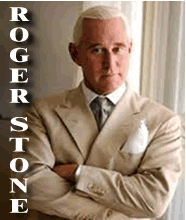
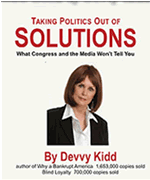
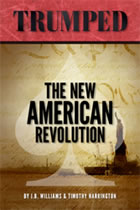
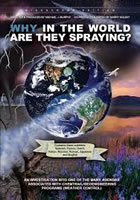



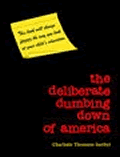
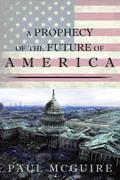




 Share
This Article
Share
This Article


